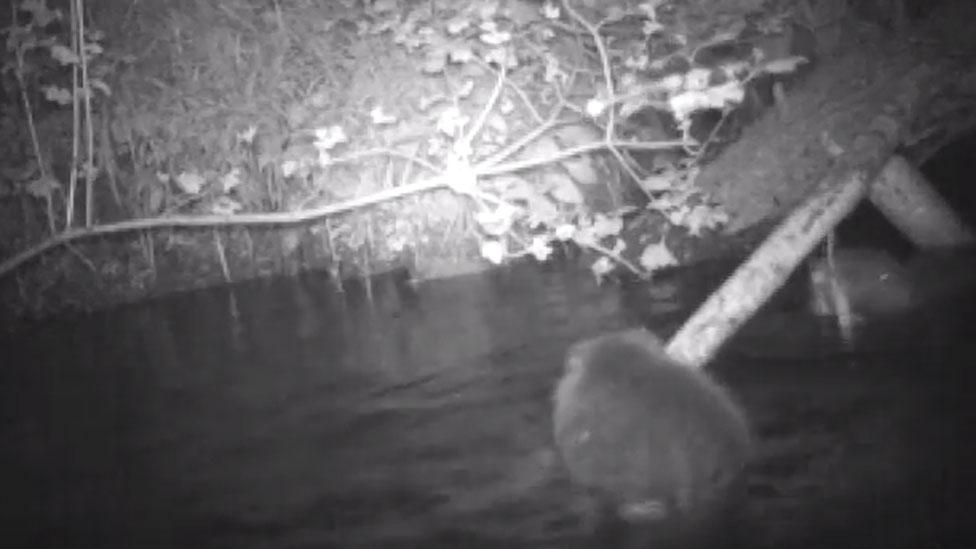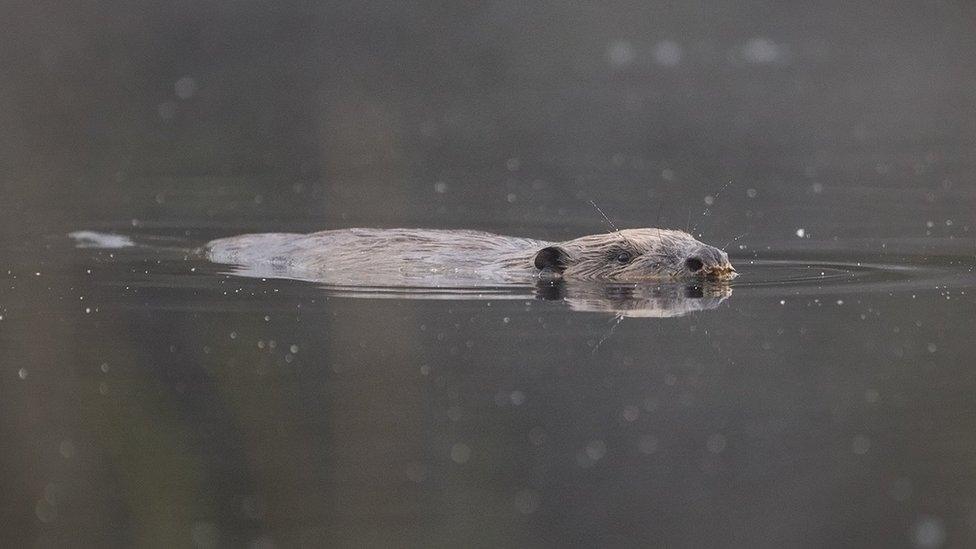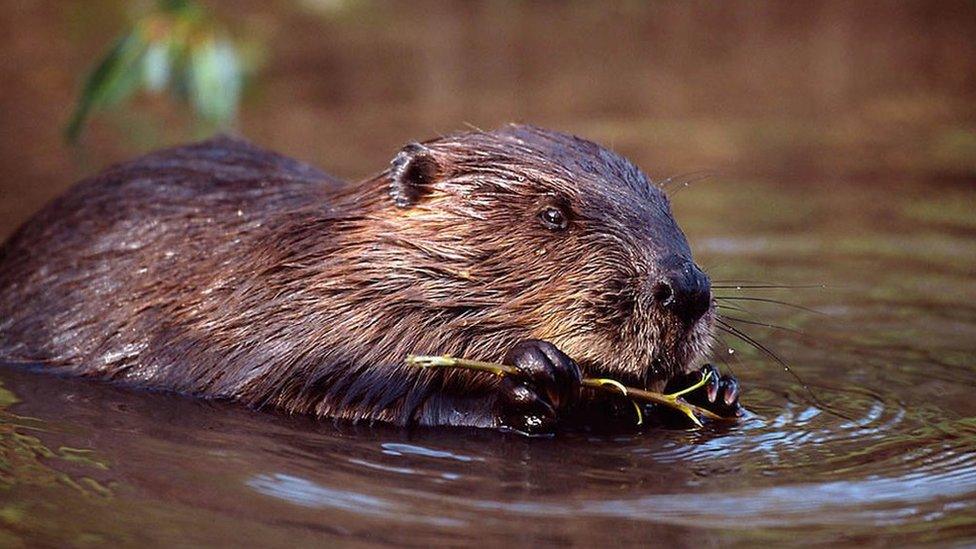Row over illegal beaver family found near Beauly
- Published

Camera trap footage of the beaver family
A conservation charity has asked the Scottish government to protect a family of beavers found to have been released illegally in a part of the Highlands.
Trees for Life said a mother and at least two kits have been observed on a river near Beauly.
It has asked that the mammals be allowed to remain where they are or be relocated.
The government has instructed that the beavers be trapped and then kept in captivity.
Trees for Life believes the animals have been in the area for at least five years.
The presence of beavers has been found previously in the Highlands.
In 2008, one was found dead on a beach at Eathie on the Black Isle after suffering what police described as a "cruel" death after ingesting a large quantity of sea water.
Police suspected the animal was linked to illegal releases of beavers in other parts of Scotland.
Native Scottish beavers were hunted to extinction in the 16th century.
'Swift action'
Last year, the Scottish government announced that beavers reintroduced to Scotland could remain and were given protected status.
Eurasian beavers taken from Norway were released at Knapdale in Argyll in 2009. An illegally-released population has also been discovered in Tayside.
Both groups will be allowed to expand naturally but will be managed to protect farmers and land owners.
But in the case of the Beauly beavers, Environment Secretary Roseanna Cunningham said the animals had been released illegally and must be removed.

Beavers in Argyll and Tayside have been given protection
She said: "We have been clear that we are minded that beavers can remain in Scotland and that their range can expand naturally.
"But the unauthorised release of beavers is a criminal offence and will damage the beaver reintroduction project.
"That is why I am asking Scottish Natural Heritage to take swift action in the Beauly area. We must avoid a repeat of the experience on Tayside."
Alan McDonnell, conservation projects manager at Trees for Life, said the government's decision was "disappointing".
He said: "Whilst we understand that the minister wants to address the concerns of landowners in Tayside, the situation here is very different and we think it is possible to consult and negotiate with landowners in the immediate vicinity of the family and upstream to find an alternative outcome for the animals.
"We think these beavers have been active at this site for at least five years without any local concerns being raised. Which just goes to show that in the right location, beavers and other land use interests can co-exist successfully."
- Published24 November 2016
